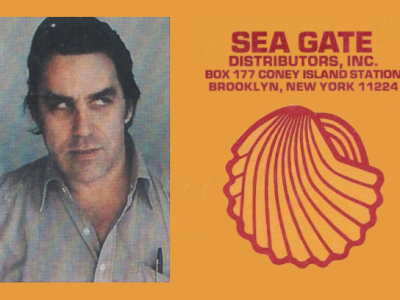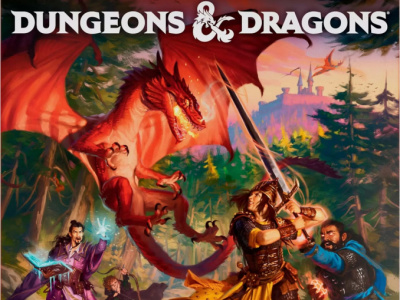As somebody who’s been writing about the business of geek culture for nearly 40 years, I’ve seen a lot of turmoil and disruption, but I’ve never seen anything like what’s happening in this, our first plague year. Not only do we have a whole range of profound immediate problems, the prospects of coming out of them any time soon are diminishing by the day. Let’s look at the different parts of the business, where we are now, and what’s coming next.
Consumer demand is being battered by layoffs. It’s likely that with the new unemployment claims reported Thursday, that over 26 million Americans will have lost their jobs in four weeks, a level of economic devastation never seen before in such a short period of time. Even with unemployment insurance expansion and stimulus payments to consumers, the confidence to spend money on non-essentials is likely to decline along with consumer paychecks.
A huge swath of geek culture retail is shut down, and will come back hamstrung. The independent retailers that form the heart of the comics and games businesses are mostly shut down to foot traffic and able to do only a fraction of the business they were before shutdown orders were implemented. Even when stores are allowed to re-open, in many states it’s likely that there will be restrictions on the number of people in stores at the same time, on the types of interactions, and on high-density events that build community and demand in those stores, such as in-store gaming and creator appearances. And if cases surge after re-opening, more strict social distancing rules could once again be implemented, starting the whole process over again.
Specialty retail chains, from book chains to video game stores to merch havens like Hot Topic, have also largely been shut down.
Online retail has picked up some of the slack, but even mighty Amazon has been unable to ship games and graphic novels at anything close to its previous levels of service. The best news there is that for third-party sellers that do their own shipping, the Amazon platform continues to function as a way to get new orders.
Mass merchants are about the only retailers that are continuing to function somewhat normally, although their attention is focused on supplying the huge demand increase for food and other goods (like toilet paper) that used to be consumed out of home. As we saw in one mass merchant in recent channel checks from our Pro site, some geek products appeared to have good supply (see “Pro: Channel Check: Target Graphic Novels”), while others did not (see “Pro: Channel Check: Target – Games”).
Supply chains are disrupted, and will continue to be. Closest to stores, the disruption of supply chains takes the form of distribution operations that are shut down or operating at only partial capacity. All three of the Geppi Family Enterprises distribution companies (Diamond Comic Distributors, Alliance Game Distributors, and Diamond Book Distributors) are largely shut down. Other hobby game distributors are operating only some warehouses. Distributors in the book channel are operating with limited capacities. Publisher warehouses are operating at varying levels, most not at full speed.
Production at North American printers is spotty, with some shut down completely.
In China, where a high percentage of game and merch manufacturing for the U.S. market is done, manufacturing has not returned to pre-Covid levels, and logistics networks are still disrupted by the long shutdown. Getting products made in China, shipped, and distributed in North America is not going to be as easy as it was in 2019 for some time.
In addition to disruption of new product releases, we’re also starting to see spot problems with supply of evergreen products, like miniatures paints and comic bags, that have long or disrupted supply chains.
No conventions. It seems unlikely that large-scale events where thousands of fans gather to interact with creators and publishers, buy new or collectible products, play games, and engage in other group activities are going to resume this year, and next year is also at risk. San Diego Comic Con, WonderCon, and Anime Expo were all canceled in one 24-hour period last week (see “Third Big Geek Culture Show Canceled Same Day”). And although a number of large shows scheduled for the second half of the year remain on the calendar, including Gen Con, a rescheduled Origins Game Fair, Pax West, Dragon Con, and New York Comic Con, we’re betting against those happening. Even if some of them do manage to put on scaled-down events, the impact on the business of the cancellations that do occur, and on the reduced scale of any events that are held, is going to be significant.
The fan passion, commerce, deals, public awareness, and creative stimulation that happened at those events are not going to be fully replaced through other channels, so this is another direct hit to the business of geek culture.
Hollywood is shut down. Production of new movies and TV shows has ground to a halt. The scramble to deal with movies in the pipe over the last few weeks has been dramatic, as all the major studios reschedule their major Spring and Summer 2020 releases. Q2 2020 was basically wiped out. The only tentpole-level geek films still scheduled for Summer are Mulan on July 24 (rescheduled from late March) and Wonder Woman 1984 on August 14 (rescheduled from June). I doubt that either will be released on those dates, but even if they are, the damage to 2020 business will be significant. And delays in movie production may result in more releases delayed, not just because people can’t or won’t go to theaters, but because studios weren’t able to produce the films on schedule. Studios are starting to experiment with direct-to-streaming releases, most noticeably with Scoob!, Trolls World Tour, and Artemis Fowl, but will they take that experiment to tentpole-level films with massive nine-figure budgets?
America is going to run out of new TV shows. Some seasons, like The Walking Dead, have been interrupted, pilot production is halted, and new series and seasons that have been ordered can’t go into production. While people quarantined at home have been enjoying the opportunity to catch up on their streaming, what happens when there’s nothing new to watch and viewers are consigned to browsing through older shows to find something they haven’t seen? There’s going to be a significant gap in new TV programming at some point, with unknown effects.
How will Hollywood come back? Movies and TV shows are collaborative art forms, with many expensive, highly skilled professionals working in front of and behind the cameras. Will studios risk those professionals, or will they be willing to risk themselves, without a high level of comfort in their personal safety? We think not, which means the gap in film and TV production is unlikely to end any time soon.
The effects of the shifting of movie and TV productions are huge. There’s a tremendous amount of other content tied to those movies and TV shows, from comics to fiction to books to games. Merch pipelines for the movies planned for 2020 release have been set for months and years, with manufacturing booked or begun and slots reserved at major retailers. Publicity and marketing campaigns, some into eight or nine figures, have been carefully planned and scheduled. All of that is now up in the air.
The product pipelines are likely to be paused, when possible, until the movies are TV shows are released, but that leaves big holes in product originally planned for release in 2020 and for as long as the theatrical and production shutdowns continue. To get some idea of what’s happening to the business of licensed goods in geek culture, take a look at Funko, whose stock closed at $3.42 a share Wednesday, after peaking at $27.86 last September, or even Hasbro, which closed at $74.15 on Wednesday, after peaking at $124.38 last summer.
One other impact of the Hollywood shutdown needs mentioning. Not only are movies and television huge sources of licenses for games, merch, comics, and other products based on them, they’re also huge sources of revenue for content producers in geek culture. Movies and TV shows based on comics, games, and other geek culture properties pump revenue into those categories, through licenses paid, creative talent hired, and stimulation of sales on pre-existing products. Without film and TV releases, all of those impacts go away.
So we’ve got reduced consumer demand, a shuttered and/or hamstrung retail base, disrupted supply chains, no conventions, and a paralyzed Hollywood with all that entails. Geek winter is definitely coming. What’s next? Tune in tomorrow for how we get to spring.
Note: We’re putting these World According to Griepp coronavirus columns (the most recent was on distribution cash flow in a crisis, see “World According to Griepp: Distribution Cash Flow 101”) on the public site instead of the Pro site because of the importance of the times, but please support our Pro site with a new or ongoing subscription.
Milton Griepp is the founder and CEO of ICv2, and long-time executive in the geek culture business. The opinions expressed in this column are solely those of the writer.








